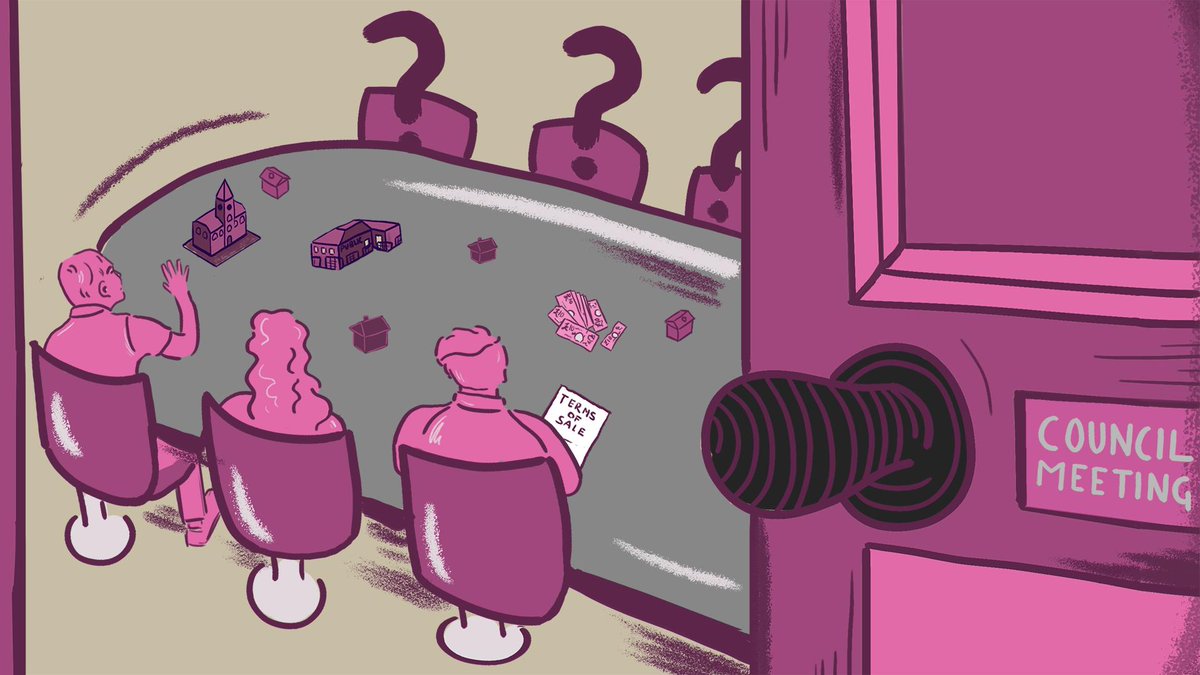Now it's time to share some findings from interviews we carried out about underrepresented communities and local news.
#NewsYouCanUse
#NewsYouCanUse
thebureauinvestigates.com/blog/2020-03-0…
But now we're going to share a piece of informal research the group worked on...
#NewsYouCanUse
us1.campaign-archive.com/home/?u=0592af…
This yielded 24hrs of rich data about how local news is serving (or not serving) communities up and down the country.
Here are some key themes which emerged:
#NewsYouCanUse
Despite a clear desire amongst respondents to engage with local power structures and make change, many felt local news didn't facilitate this or adequately 'join the dots' when reporting on marginalised communities.
#NewsYouCanUse
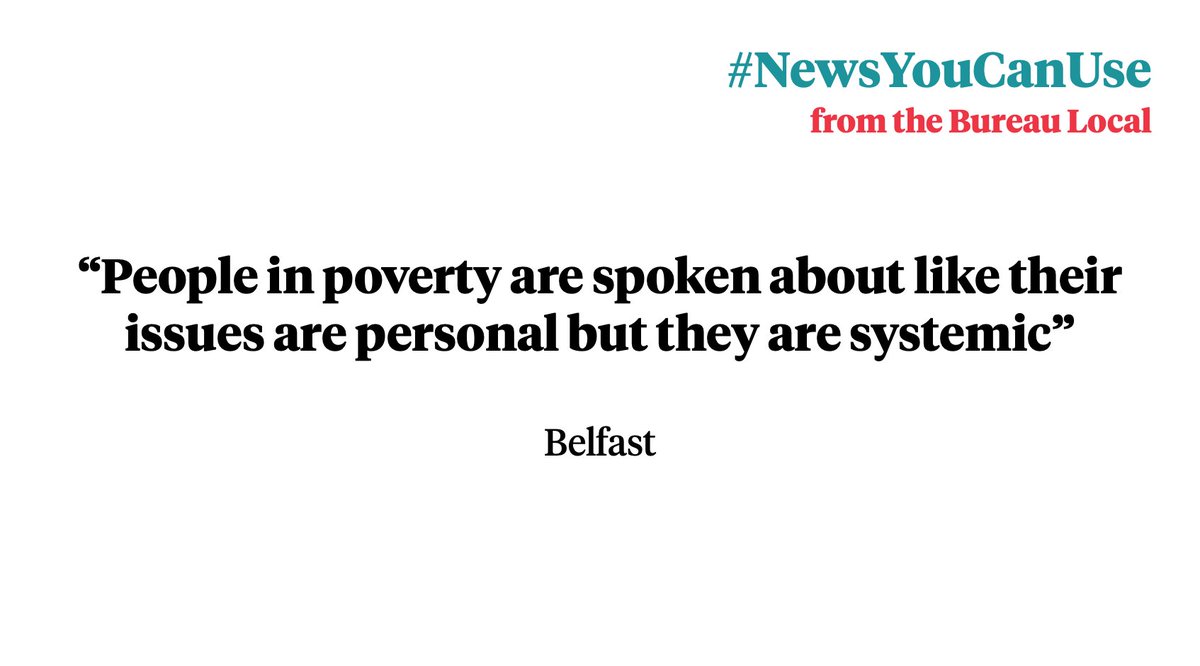
Some respondents also expressed a desire for more challenging interviews with local decision makers, suggesting that journalists aren't always motivated to interrogate or to dig deeper.
#NewsYouCanUse
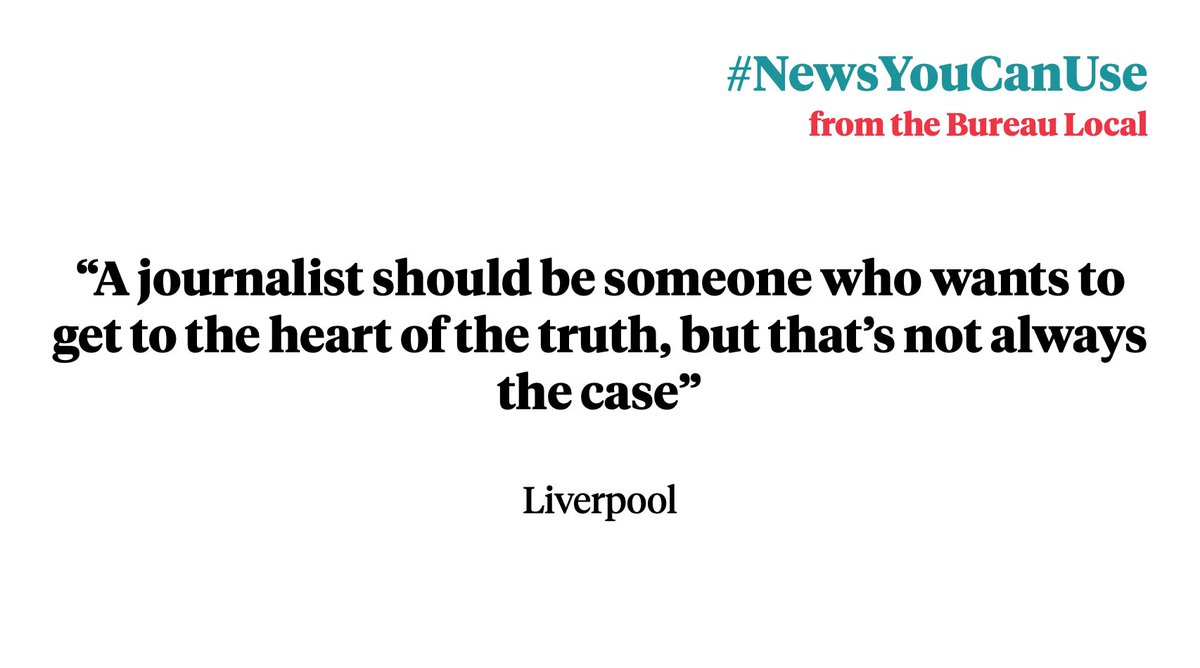
There was a feeling amongst interviewees that traditional news and media was for 'other people'. Many described tuning out and turning instead to social media or community forums that felt more relevant to their lives.
#NewsYouCanUse
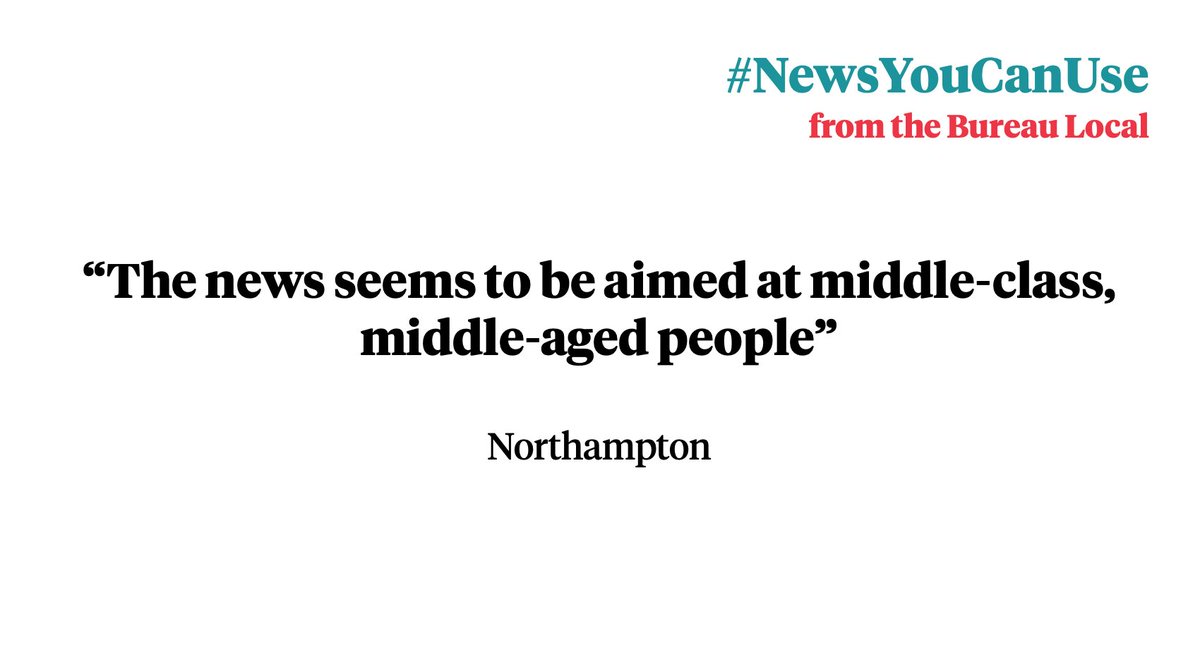
Crucially, the experience of different "identity" groups - e.g. queer, disabled, Muslim, Asian - and their perceptions of how relevant news was to them varied depending on where they were located geographically.
#NewsYouCanUse
There was a sense amongst many that people like them just weren't visible at all in local news, or that their stories simply weren't being told.
#NewsYouCanUse
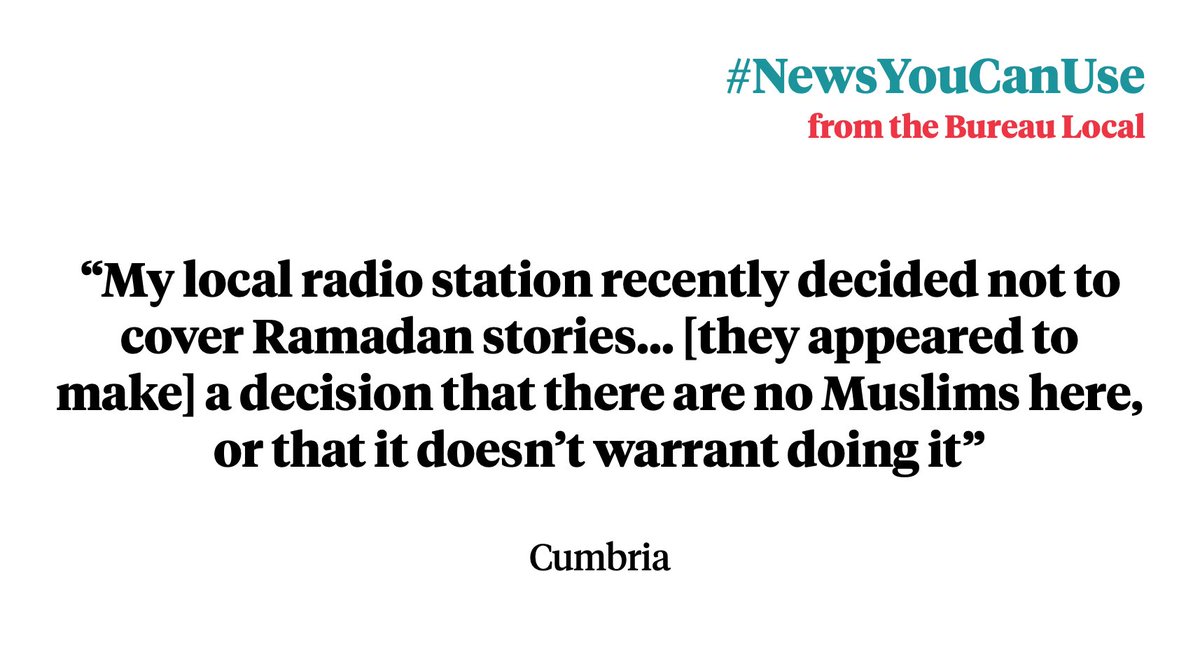
Where stories *were* told about their communities, many felt these often didn't include the voices of those most affected, or emerged from an attempt at diversity that didn't actually engage with diverse communities about what they wanted.
#NewsYouCanUse
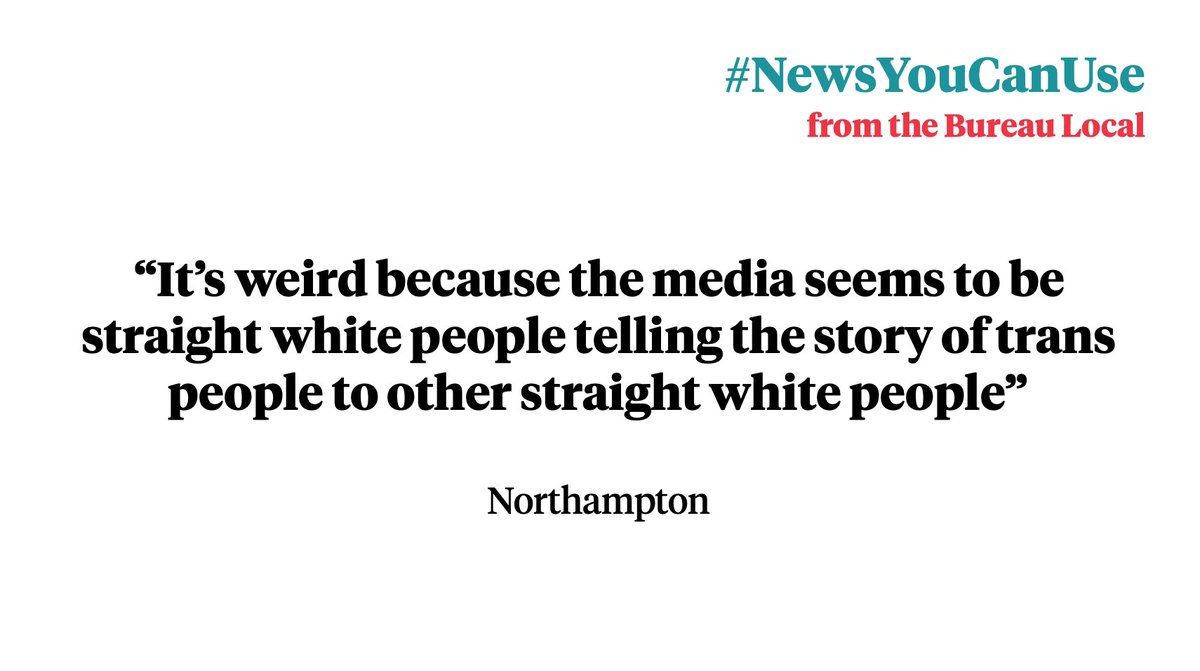
Many respondents noted how representations of their communities were disproportionately negative, or focused on the extremes rather than authentic everyday lives people could relate to.
#NewsYouCanUse
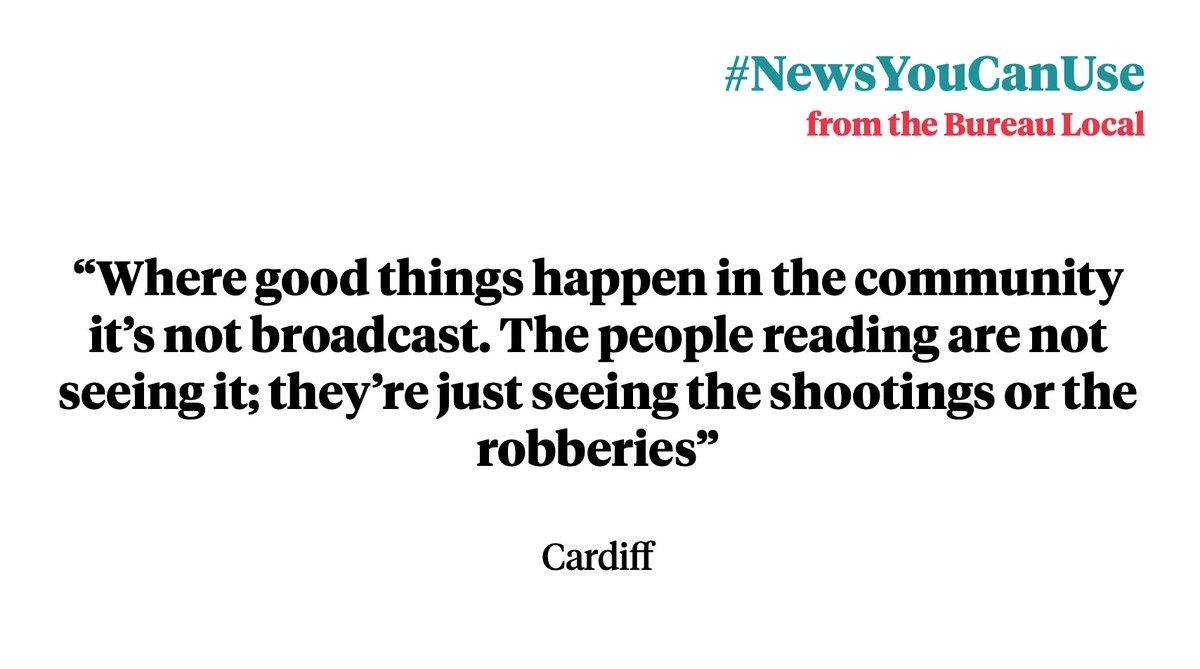
Some also told us they actually opposed increased visibility for their communities within the news, because of a fear that this would translate as more negative and unrepresentative stories.
#NewsYouCanUse
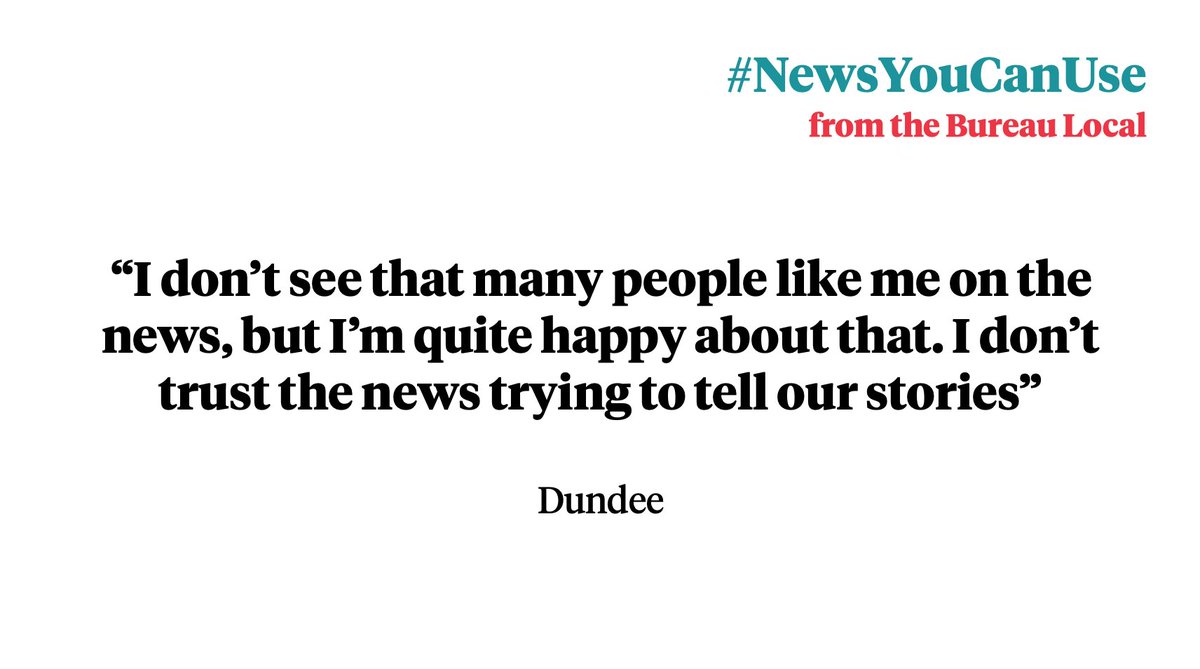
Trust in journalists and the journalism industry was low amongst interviewees. There was a perception that journalists have pre-determined narratives and can twist or manipulate what you say to suit them.
#NewsYouCanUse
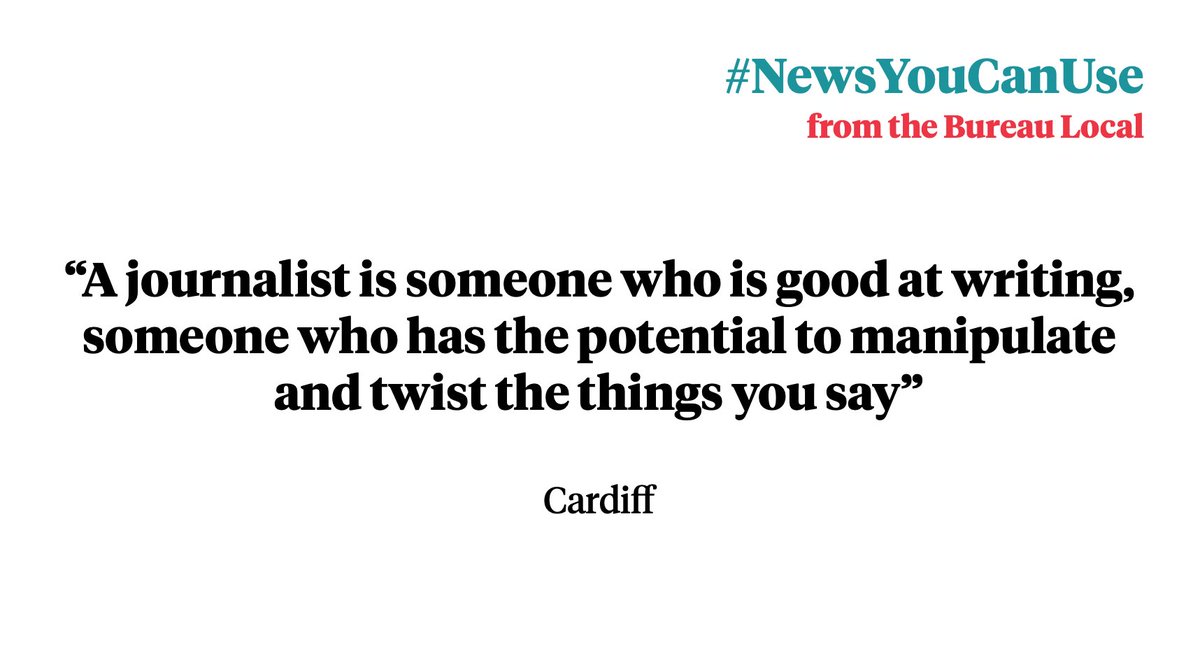
A binary view of journalists emerged, where they were seen as either intrepid and inspirational, or manipulative and corrupt. Lyra McKee, Anita Rani and Nick Davies were amongst those named as relatable and trustworthy.
#NewsYouCanUse
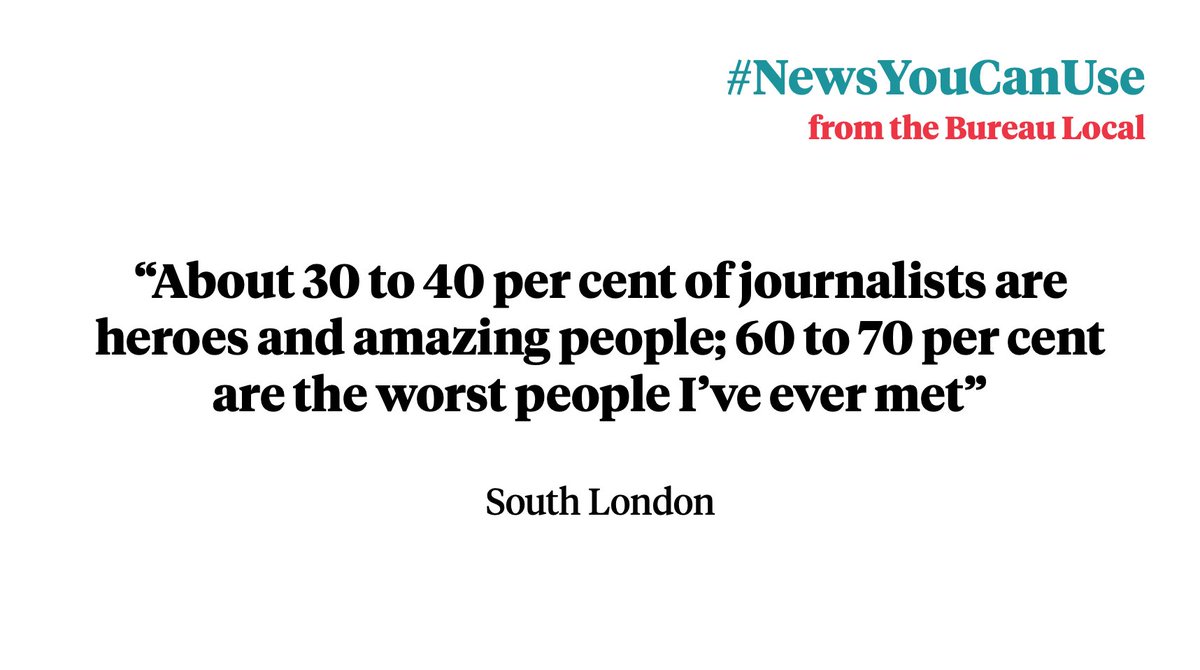
Some interviewees commented on the inaccessibility of traditional news formats for diverse audiences, stating that rigid formats and styles could make them tune out or look elsewhere for their news.
#NewsYouCanUse
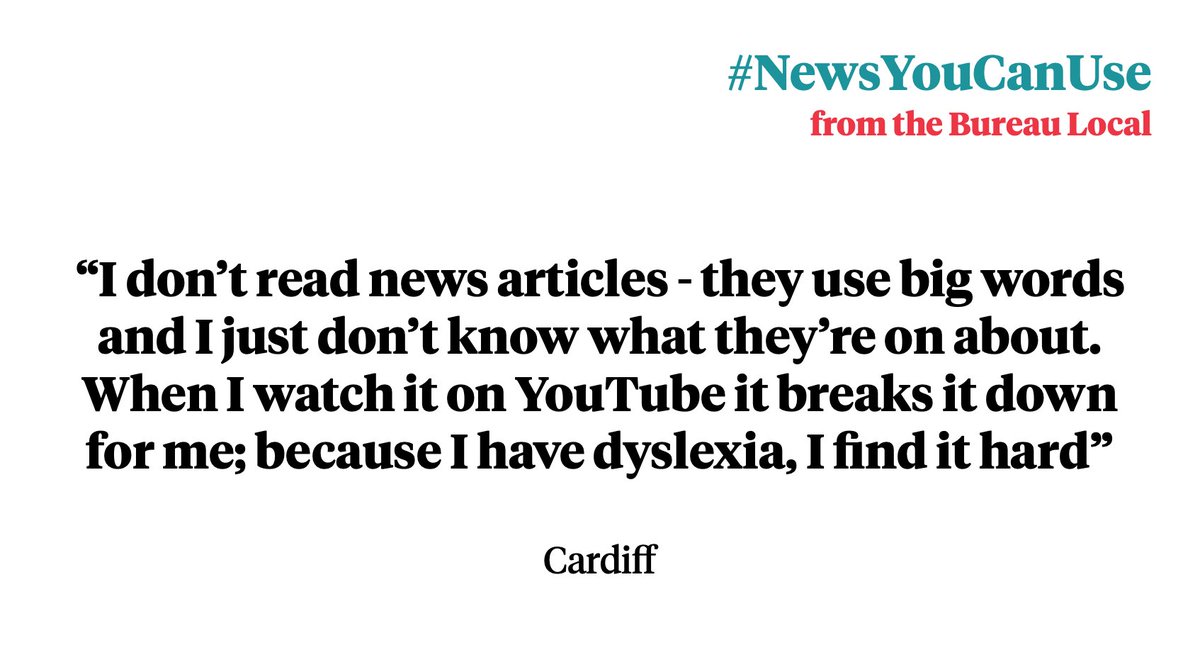
Many also highlighted low levels of 'media literacy' within their communities, and the effects this could have on trust and the types of conversations emerging from news coverage.
#NewsYouCanUse
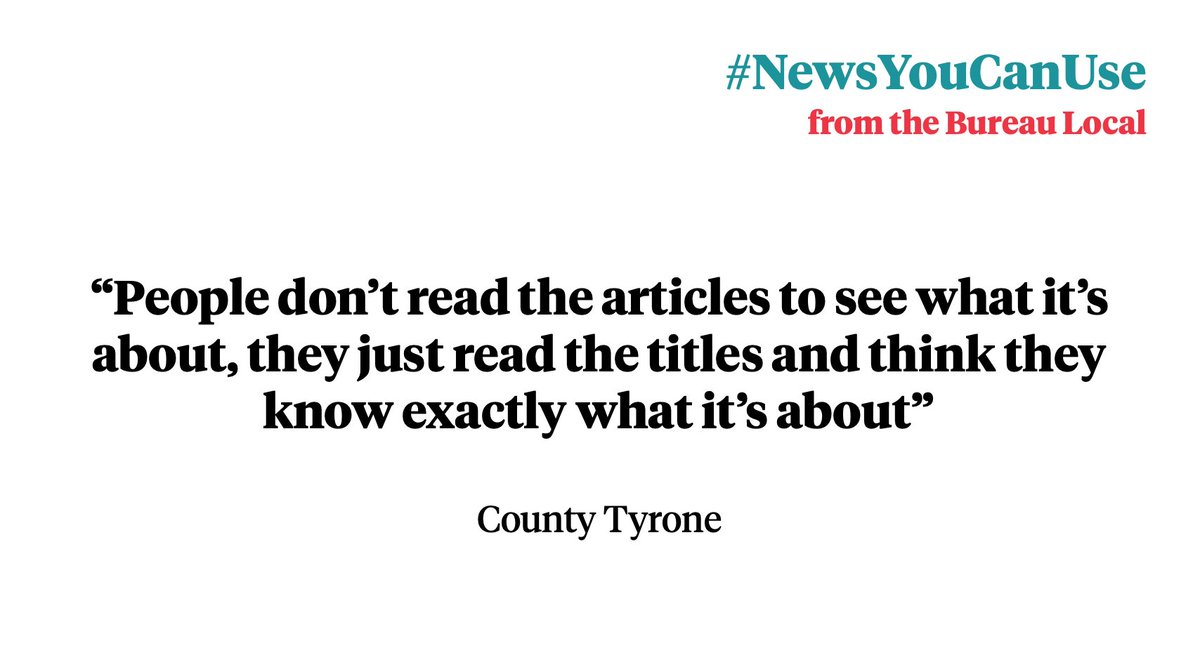
Interviews were done remotely in the midst of the coronavirus pandemic, and many reflected on how this had changed their relationship with local news as they sought out timely, relevant and local information.
#NewsYouCanUse
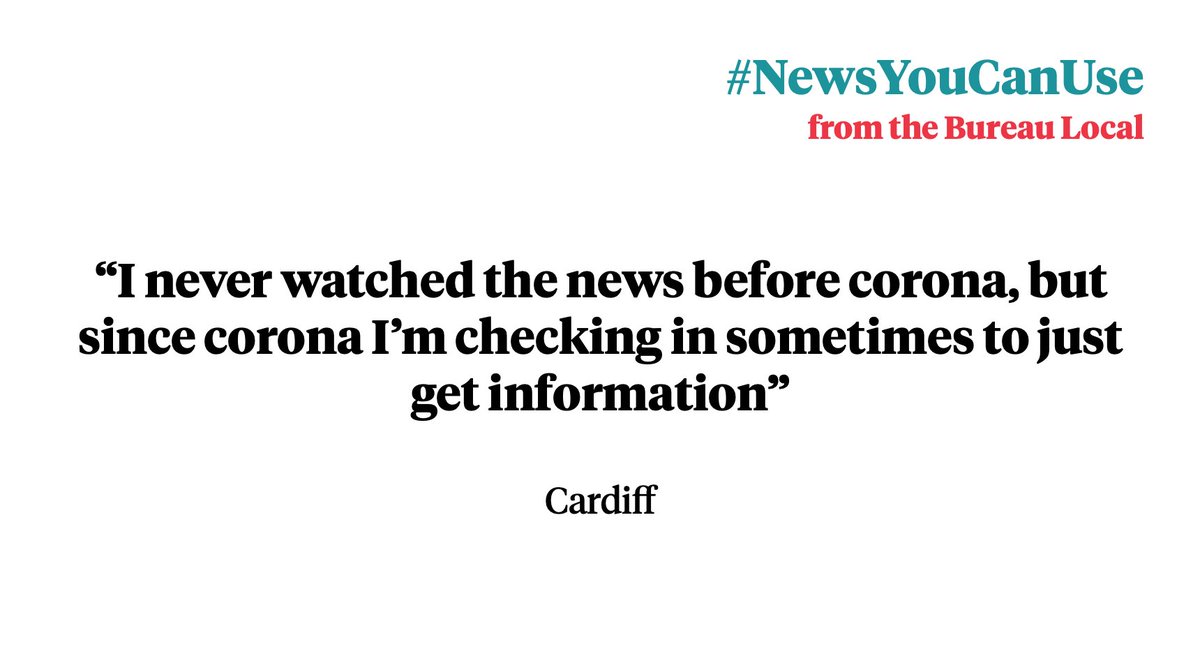
Others expressed how coronavirus coverage had reinforced their beliefs about news, the types of stories that are told and who is or isn't represented.
#NewsYouCanUse
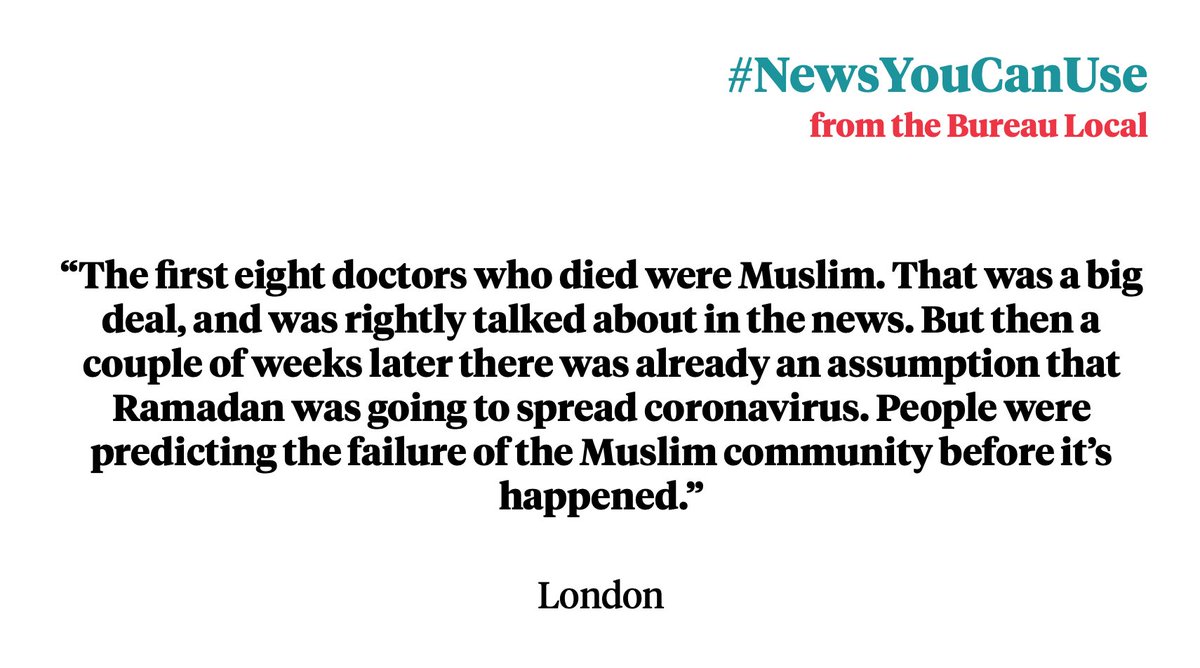
Ultimately, alongside negative feelings, many respondents also still had faith and optimism about the possibility of a better future for local news. Some highlighted the role 'everyday' people can play in documenting their own communities.
#NewsYouCanUse
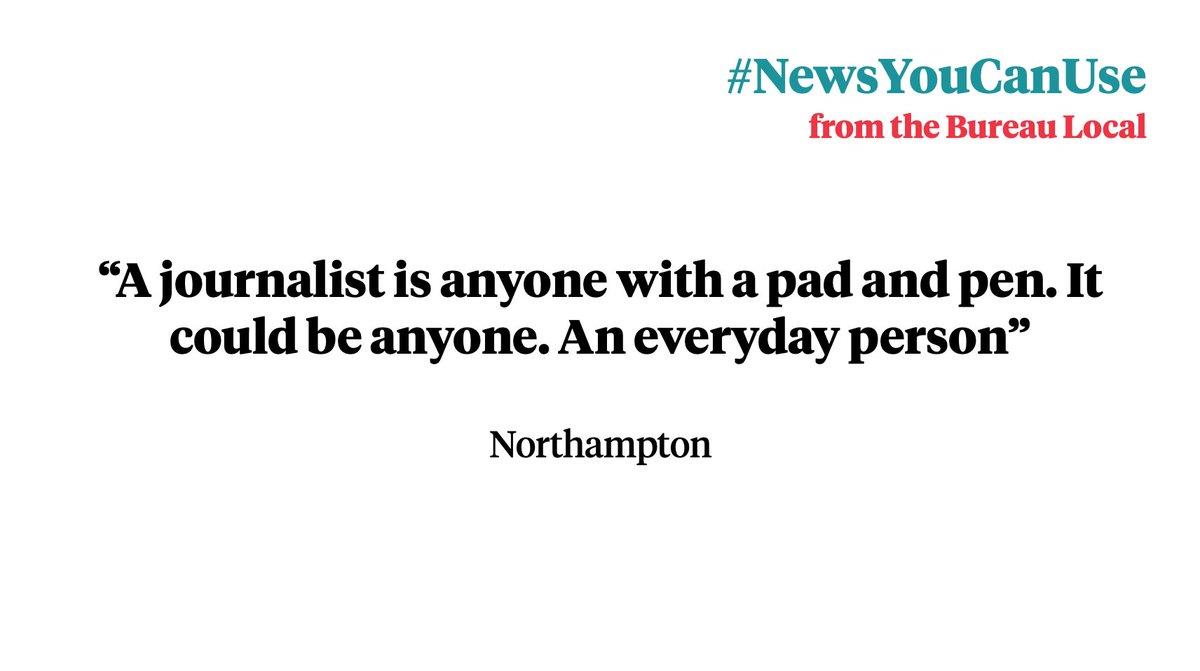
They also spoke to the role that positive, constructive journalism can play in community building and providing a well-rounded view of a community - and in keeping people engaged in the face of so much negativity and bad news.
#NewsYouCanUse
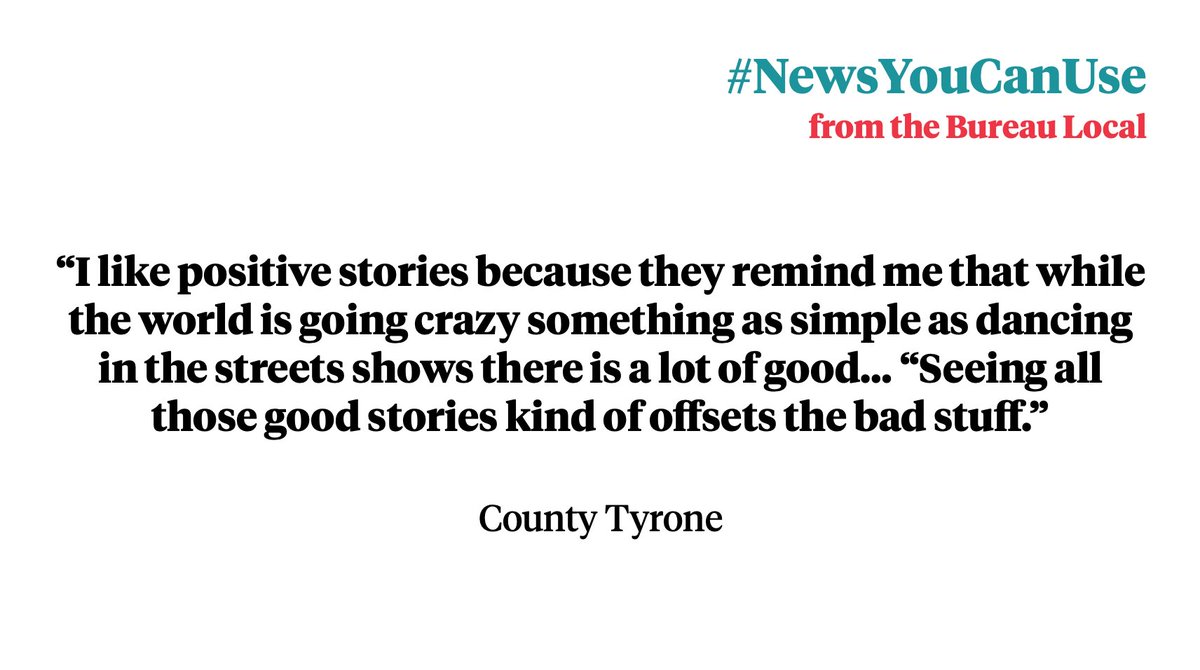
#NewsYouCanUse
drive.google.com/file/d/1k7-Bps…
#NewsYouCanUse
#NewsYouCanUse



